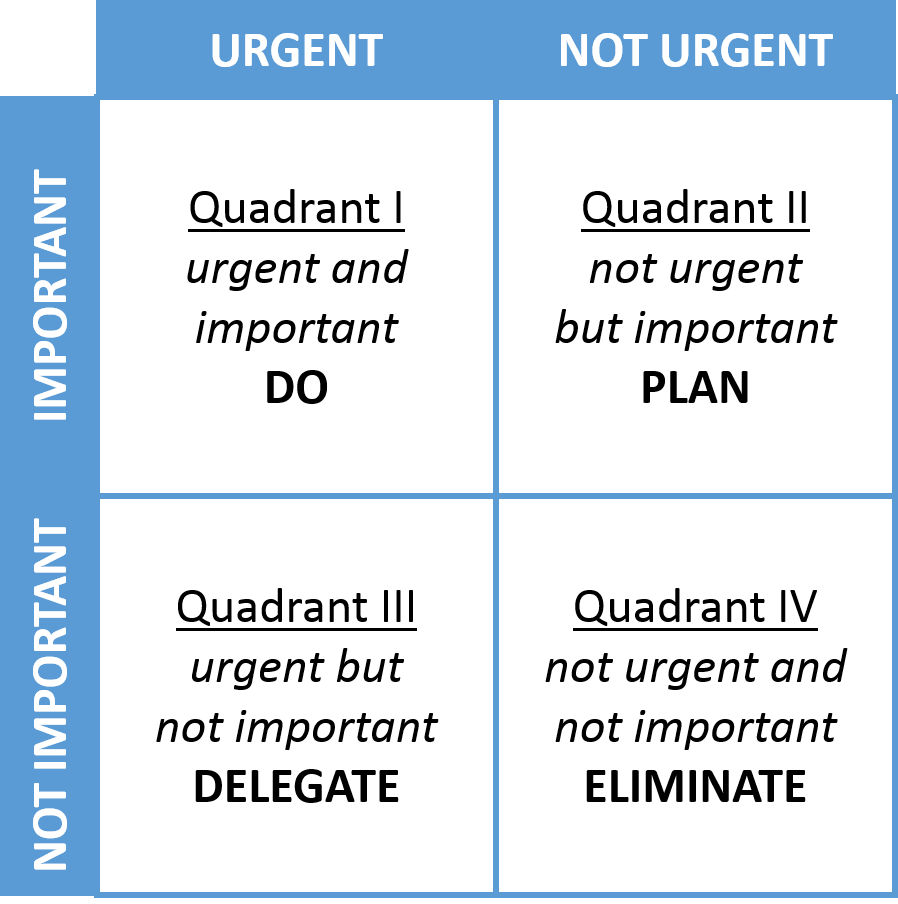Balancing Managerial Duties with Personal Workloads

One of the hard things about being a new manager is figuring out how to balance your personal workload while managing your team. You didn’t learn it as an Individual contributor. You just put your head down and got the work done. Now that you’re responsible for getting work done through others, it becomes a juggling act. It’s not easy but you can do it. You’re not born knowing how to do it, you learn the skill with time and practice.
Striking the right balance is essential not only for your personal productivity but also for team success. It isn’t always easy but it is essential for your success. Here are some tips that can help.
Balancing Management
Understanding and Setting Priorities
One of the first steps to help you balance your work is understanding what hat you’re wearing. Are you the individual contributor or are you the team leader? It depends on what you’re working on. One way to figure it out is by using the Eisenhower Matrix. This simple tool helps you understand what needs to be done, who will do it, when to do it, how to do it, and even why to do it.
The Eisenhower Matrix

- Urgent and important: Do the work
- Important but not urgent: Plan the work
- Urgent but not important: Delegate the work
- Neither urgent nor important: Eliminate or postpone the work
Assigning priorities tasks is the cornerstone of providing team leadership while completing your deliverables for your boss.
Learning to Delegate
Delegation becomes difficult for many managers. Even more so for new managers. You want to show that you deserve the job so when things don’t go as planned, you think it’s better to do it yourself. Congratulations. You just flunked management 101. You are their leader but you are also a mentor. As such, your job is to develop your people for growth. That means letting them learn by doing. It is also about creating trust and strengthening relationships. Delegation not only helps you balance your workload and management duties, but it also allows your team to improve their skill sets. Some things to consider when delegating tasks.
Keys to Effective Delegation
- Assign tasks that align with team members’ skills and development goals.
- Provide clear instructions and expectations.
- Trust your team to deliver and resist the urge to micromanage.
Delegating the right tasks to the right people will give you more time and help your people build their confidence and capabilities.
Balancing Personal Workload
Setting Boundaries and Managing Interruptions
As a leader, you get frequent interruptions. It’s part of the job but it doesn’t mean that you don’t need (and deserve) time to work uninterrupted. Letting others know when and how you structure your workload allows you personal time while still being approachable. it also helps your team develop critical thinking skills to manage issues they should be able to handle without you.
How to Establish Boundaries
Setting specific boundaries ensures you have uninterrupted time for strategic work while staying accessible to your team. Some things you can do:
- Establish specific times for open-door availability.
- Use tools like shared calendars to communicate your schedule.
- Encourage team members to solve problems independently when appropriate, reserving your input for more complex challenges.
Managing Interruptions
I created a simple communication tool for a client who felt she was constantly interrupted by things her team could (and should) be able to do for themselves. We assigned a numeric level to common reasons for interruptions. These are the levels we created. I encourage you to create your own based on your situation.
- Emergency: Immediate attention is needed.
- Permission, Help, Resources: Input needed to move a project forward.
- Strategy, Planning, Discussion: Help is needed with the actual task.
- Venting: Allowing staff to decompress without making formal complaints.
Team members identified the level they needed and she prepared to respond accordingly. This allowed the employee to identify what support they needed and it helped her realize that she didn’t need to “fix” everything. As everyone’s communication skills increased, the Interruptions decreased. It was a win for the entire team
Prioritize, Schedule, Accomplish
Your calendar is your best friend when it comes to balancing your workload and your managerial duties. Take the time to plan your week and work your plan. Use your calendar to keep track
- Start with a list of everything coming up for the week.
- Transfer the list to the Eisenhower Matrix.
- Eliminate or delay tasks in Quadrant 4.
- Delegate tasks in Quadrant 3.
- Schedule time for Quadrant 2 tasks.
- Work on Quadrant 1 tasks first.
Take Care of Yourself
Lastly, don’t forget to manage your well-being. Burnout is a real risk for managers who try to do it all. Prioritize self-care by:
- Taking regular breaks.
- Maintaining a healthy work-life balance.
- Seeking support when needed, whether from mentors, peers, or professional resources.
Conclusion
Balancing leadership duties with hands-on work is a skill that takes time and practice. By prioritizing strategically, delegating effectively, setting boundaries, and regularly reviewing your approach, you can manage your time in a way that helps both you and your team. Remember, your role as a manager is not just to complete tasks but to guide your team toward collective success.